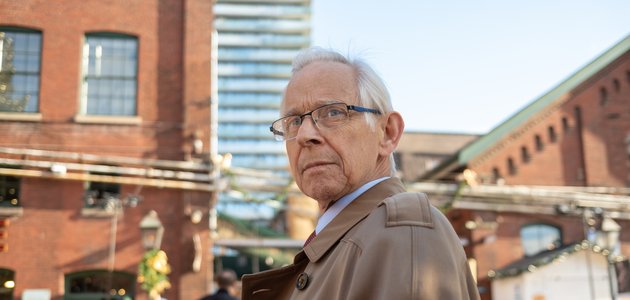Chuck Konkel approaches writing as he does policing, listening and learning, looking for truth and paying attention to every detail along the way. He has served as a Toronto police officer since 1976 and recently penned a third book, as always, released by a major publisher.
“Writing is a passion second only to my police work,” said Konkel, who has served as beat cop, police spokesperson, organized crime investigator and now oversees uniform personnel at the non-emergency call centre.
“It all started for me as a kid in the library, books allowed me to go to places I’ve never been,” said the 47-year veteran, who still gets caught up in a Alan Furst or Phillip Kerr thriller into the wee hours of the night.
That curiosity led him to study at university, discover policing abroad and at home and rediscover writing as an adult looking for a place to park his life experiences.
His adventure in policing began when he responded to an ad in a newspaper looking for constables to serve with the Royal Hong Kong Police. Armed with a Masters in International Relations (University of Waterloo) he ditched his road into academia to travel to one of the most exotic and challenging cities in the world.
He returned to Canada several years later when his father became ill. But Edward Konkel lived decades longer and penned his own history of surviving two concentration camps and a fire squad as a Polish prisoner of war. Edward met his wife Ann in the Netherlands (where Chuck was born) while working for the United Nations. The family migrated to Canada and Edward became a steelworker in Hamilton. Ann, a qualified teacher turned operating room nurse, is now a spry 107. Longevity may be in Konkel’s blood.
His first book, The Glorious East Wind, which was released in 1986, detailed the final years of British Hong Kong. As do all his books, it drew on his imagination, painstaking research and policing experiences he’d acquired in that teeming port city.
His second book, Evil Never Sleeps, followed corruption through the politics and policing of Mexico.
“You start with something real, research it, really research it, and try to see a grey zone where it doesn’t seem to have an answer,” said Konkel, of his process. He takes pains to be true to his descriptions of policing, the processes of bureaucracy, tools of the trade, rigour of shift work and quirks of the job. “Credibility is important to the reader, it’s important to me as a police officer – it’s what builds goodwill and trust,” says Konkel, noting the importance in writing and in police work.
His latest work, Who Has Buried the Dead, is a historical novel detailing Soviet Imperialism, which took him nine years to research and write.
“This book turns on secrets,” says Konkel, who started writing it eight years ago. “One secret is buried in the deep, dark forest of Katyn, Poland and the other is in the pages of a notebook – The Scottish Book – kept in a modest café in Lwow which is an ancient Polish city.”
While composing a book, Konkel says it’s fun to let his mind wander. “It’s a sandbox that you play in. You write and write and write and re-write. Sometimes you make a castle and sometimes it all washes away,” he said.
This time the process became therapeutic after the diagnosis of rare cancer led him to endure surgeries, procedures and over 50 rounds chemotherapy.
“The cancer got into my liver and I was told I had about five weeks to live,” he said. “I said ‘no, I am not’. One of the things I’ve learned over the years is that you must have hope. No matter how horrible the news, you have to believe in yourself, your family and the police family who supports you to find that extra ounce of energy to move on.”
Writing helped him do just that keeping him motivated. “I find it to be a very healthy outlet to allow your brain to function and open your mind to new ideas.”
Listening to people has been his job for decades.
“We work the hours no one works, often with no prior preparation except a radio call to attend a place knocking on a door that opens to confront a problem,” he said, of the challenge of policing. “You have to decide how you’re going to deal with that problem and no amount of training can prepare you for all of them.”
He says taking time to find common ground with people is always the best starting point. “I think as a police officer you have to be well-rounded, able to find something in common with people, so people see past the uniform to the person,” he said. “People can have a negative stereotype about us, but you take that apart one step at a time.”
Writing provides Konkel with a means to reach people who would never consider police officers other than in the media stereotype. “The joy is finding an audience that connects to you as a human being.”





